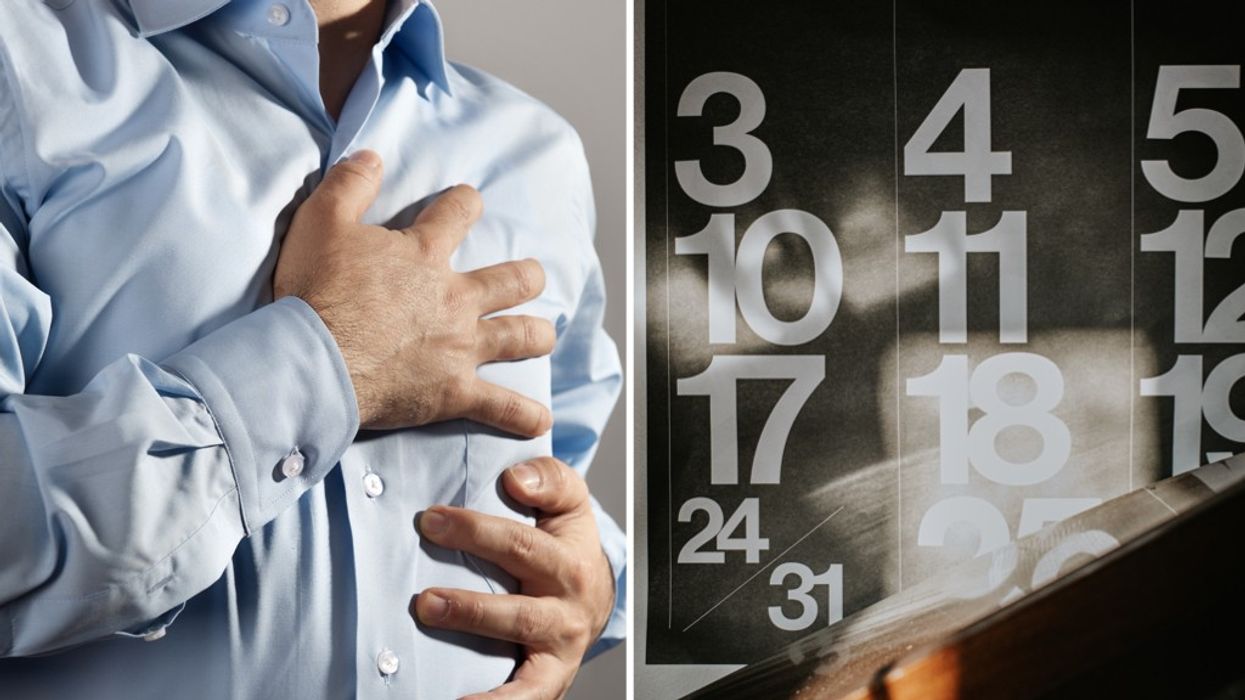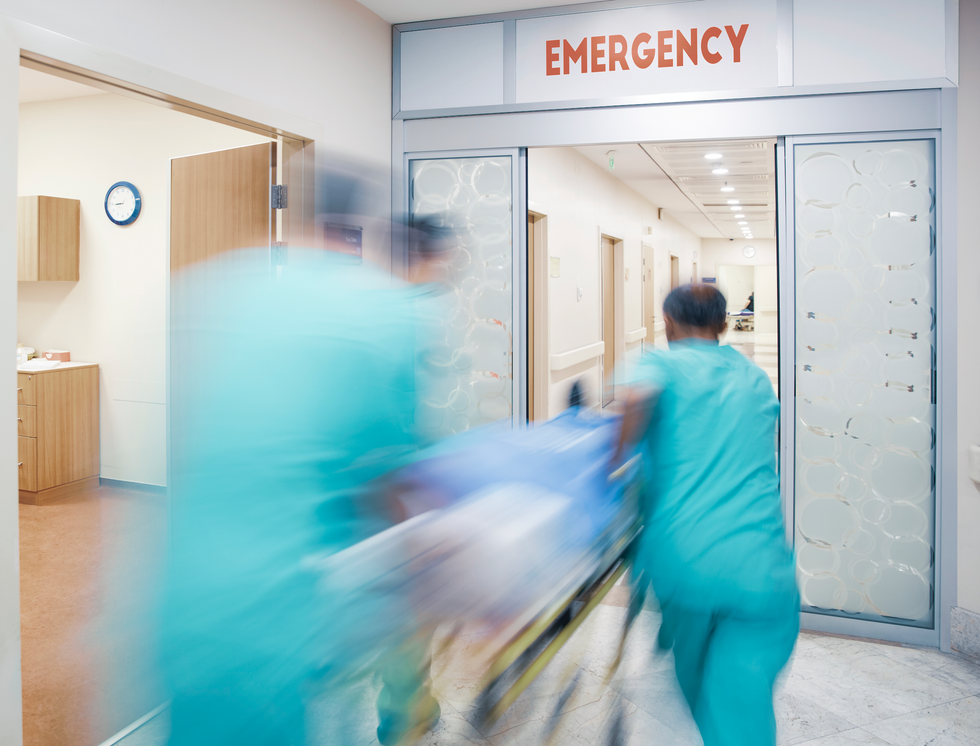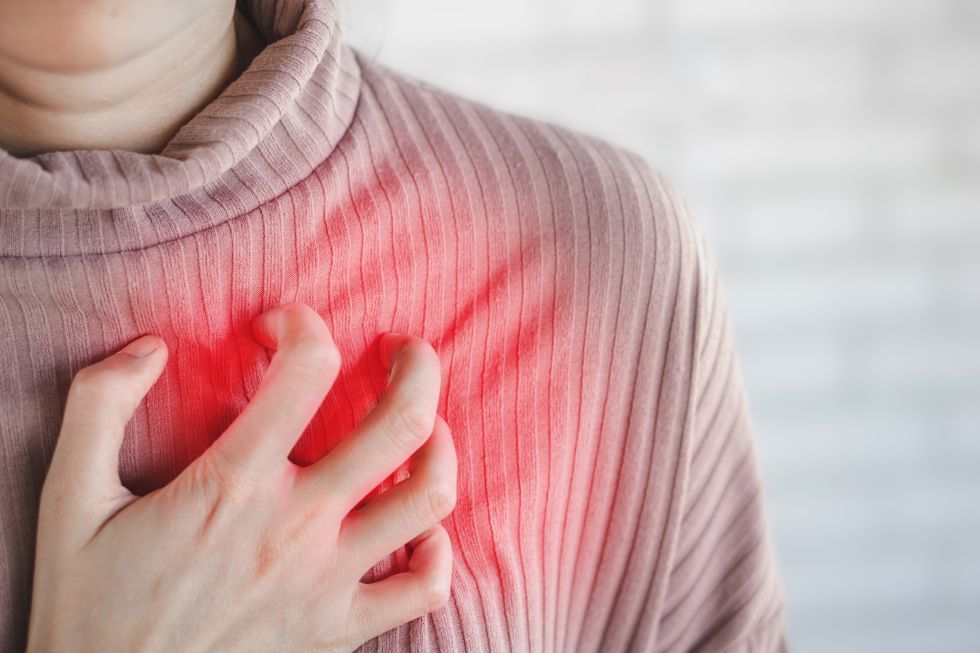People are having serious heart attacks on the same day of the week - and scientists are worried

Researchers found there was a notable increase in the rate of STEMI heart attacks at the start of the working week
|Getty Images

Understanding why this is happening could save lives, researchers say
Don't Miss
Most Read
Latest
Mondays are often met with dread but it's not just the start of the working week that should perturb people: the most serious type of heart attack is most likely to strike on this day, a study has revealed.
The study, led by doctors from the Belfast Health and Social Care Trust and the Royal College of Surgeons in Ireland, examined the records of 10,528 patients admitted to hospitals across the island of Ireland (including the Republic of Ireland and Northern Ireland).
These patients had been admitted between 2013 and 2018 for the most severe type of heart attack, known as an ST-segment elevation myocardial infarction (STEMI).
This happens when a major coronary artery, which supplies blood to your heart, becomes completely blocked. Without emergency care, STEMIs can be fatal.

They also saw higher than expected rates of STEMI-related hospital admissions on Sundays
|Getty Images
The researchers found there was a notable increase in the rate of STEMI heart attacks at the start of the working week, with rates highest on a Monday (a 13 per cent increase). They also saw higher than expected rates of STEMI on Sundays.
What's causing this effect?
Scientists are stumped by this phenomenon. Past studies showing a greater likelihood of heart attacks at the start of the week have suggested a link with the body's circadian rhythm, which governs our sleep and wake cycles.Cardiologist
Doctor Jack Laffan, who led the research at the Belfast Health and Social Care Trust, describes the "strong statistical correlation" between the start of the working week and the incidence of STEMI as a "curiosity” that's likely have more than one explanation.
“The cause is likely multifactorial, however, based on what we know from previous studies, it is reasonable to presume a circadian element.”
The season and time of day has also been linked to a higher incidence of heart attacks, the doc added: “We know that heart attacks are more likely to happen in winter and in the early hours of the morning. The same effect is seen in the event rate of strokes. Previous studies have also shown a higher rate of heart attacks in the days following the clocks going forward for daylight savings time.
“The exact mechanism for these variations is unknown but we presume it has something to do with how the circadian rhythm affects circulating hormones that can influence heart attacks and strokes.
“It is likely to be due to the stress of returning to work. Increased stress leads to rising levels of the stress hormone cortisol, which is linked to a higher risk of heart attack.”
LATEST DEVELOPMENTS

Heart attacks are more likely to happen in winter and in the early hours of the morning
|Getty Images
The British Heart Foundation (BHF) adds a note of caution to the findings. Although STEMI heart attacks are more likely to occur on Mondays, this doesn’t mean they are unlikely to happen during the rest of the week.
"Whether it’s a Monday, Tuesday, or another day of the week, heart attacks are one of the most common medical emergencies," the BHF says.
However, this does not make the finding any less important as it could have profound implications, according to Professor Sir Nilesh Samani, Medical Director at the BHF.
He explained: “Someone is admitted to hospital due to a life-threatening heart attack every five minutes in the UK, so it’s vital that research continues to shed light on how and why heart attacks happen.
“This study adds to evidence around the timing of particularly serious heart attacks, but we now need to unpick what it is about certain days of the week that makes them more likely. Doing so could help doctors better understand this deadly condition so we can save more lives in future.”
How do I know if I am having a heart attack?
Symptoms of a heart attack can include:
- Chest pain – a feeling of pressure, heaviness, tightness or squeezing across your chest
- Pain in other parts of the body – it can feel as if the pain is spreading from your chest to your arms (usually the left arm, but it can affect both arms), jaw, neck, back and tummy
- Feeling lightheaded or dizzy
- Sweating
- Shortness of breath
- Feeling sick (nausea) or being sick (vomiting)
- An overwhelming feeling of anxiety (similar to a panic attack)
- Coughing or wheezing
A heart attack is a medical emergency. Call 999 and ask for an ambulance if you suspect a heart attack, advises the NHS.










